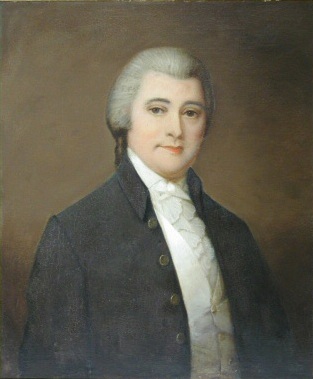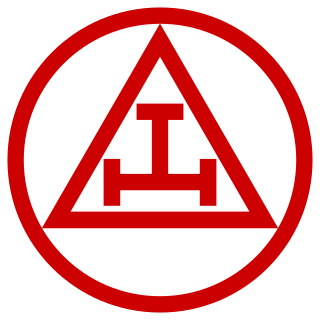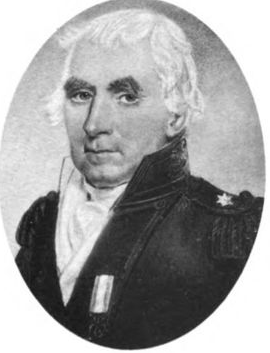Related Research Articles

The Republican Party, retroactively called the Democratic-Republican Party, and also referred to as the Jeffersonian Republican Party among other names, was an American political party founded by Thomas Jefferson and James Madison in the early 1790s that championed liberalism, republicanism, individual liberty, equal rights, decentralization, free markets, free trade, agrarianism, and sympathy with the French Revolution. The party became increasingly dominant after the 1800 elections as the opposing Federalist Party collapsed.

Admiral of the Fleet Richard Howe, 1st Earl Howe,, was a British naval officer. After serving throughout the War of the Austrian Succession, he gained a reputation for his role in amphibious operations against the French coast as part of Britain's policy of naval descents during the Seven Years' War. He also took part, as a naval captain, in the decisive British naval victory at the Battle of Quiberon Bay in November 1759.

Robert Morris Jr. was an English-American merchant and a Founding Father of the United States. He served as a member of the Pennsylvania legislature, the Second Continental Congress, and the United States Senate, and he was a signer of the Declaration of Independence, the Articles of Confederation, and the United States Constitution. From 1781 to 1784, he served as the Superintendent of Finance of the United States, becoming known as the "Financier of the Revolution." Along with Alexander Hamilton and Albert Gallatin, he is widely regarded as one of the founders of the financial system of the United States.

William Blount was an American politician, landowner and Founding Father who was one of the signers of the Constitution of the United States. He was a member of the North Carolina delegation at the Constitutional Convention of 1787 and led the efforts for North Carolina to ratify the Constitution in 1789 at the Fayetteville Convention. He then served as the only governor of the Southwest Territory and played a leading role in helping the territory gain admission to the union as the state of Tennessee. He was selected as one of Tennessee's initial United States Senators in 1796, serving until he was expelled for treason in 1797.

Events from the year 1744 in Canada.

Pierce Butler was an Irish-born American politician who was one of the Founding Fathers of the United States. Born in the Kingdom of Ireland, Butler emigrated to the British North American colonies, where he fought in the American Revolutionary War. After the war, he served as a state legislator and was a member of the Congress of the Confederation. In 1787, he served as a delegate to the 1787 Constitutional Convention, where Butler signed the Constitution of the United States; he was also a member of the United States Senate.

Andrew Hamilton was a Scottish lawyer in the Thirteen Colonies who settled in Philadelphia. He was best known for his legal victory on behalf of the printer and newspaper publisher John Peter Zenger. His involvement with the 1735 decision in New York helped to establish that truth is a defense to an accusation of libel. His eloquent defense concluded with saying that the press has "a liberty both of exposing and opposing tyrannical power by speaking and writing truth."
Scotch-IrishAmericans are American descendants of Ulster Scots people who emigrated from Ulster to America during the 18th and 19th centuries. Their ancestors had originally migrated to Ulster mainly from the Scottish Lowlands and Northern England in the 17th century. In the 2017 American Community Survey, 5.39 million reported Scottish ancestry, an additional 3 million identified more specifically with Scotch-Irish ancestry, and many people who claim "American ancestry" may actually be of Scotch-Irish ancestry.

Sir Alured Clarke was a British Army officer. He took charge of all British troops in Georgia in May 1780 and was then deployed to Philadelphia to supervise the evacuation of British prisoners of war at the closing stages of the American Revolutionary War. He went on to be Governor of Jamaica and then lieutenant-governor of Lower Canada in which role he had responsibility for implementing the Constitutional Act 1791. He was then sent to India where he became Commander-in-Chief of the Madras Army, then briefly Governor-General of India and finally Commander-in-Chief of India during the Fourth Anglo-Mysore War.

Hugh Henry Brackenridge was an American writer, lawyer, judge, and justice of the Supreme Court of Pennsylvania.
John Mitchell was a colonial American physician and botanist. He created the most comprehensive and perhaps largest 18th-century map of eastern North America, known today as the Mitchell Map. First published in 1755, in conjunction with the imminent Seven Years' War, the map was subsequently used during the Treaty of Paris (1783) to define the boundaries of the newly independent United States and has been resolving border disputes since.
Andrew Brown may refer to:
The Panic of 1796–1797 was a series of downturns in credit markets in both Great Britain and the newly established United States in 1796 that led to broader commercial downturns. In the United States, problems first emerged when a land speculation bubble burst in 1796. The crisis deepened when the Bank of England suspended specie payments on February 25, 1797 under the Bank Restriction Act of 1797. The Bank's directors feared insolvency when English account holders, who were nervous about a possible French invasion, began withdrawing their deposits in sterling rather than bank notes. In combination with the unfolding collapse of the U.S. real estate market's speculative bubble, the Bank of England's action had deflationary repercussions in the financial and commercial markets of the coastal United States and the Caribbean at the start of the 19th century.

Royal Arch Masonry is the first part of the American York Rite system of Masonic degrees. Royal Arch Masons meet as a Chapter, and the Royal Arch Chapter confers four degrees: Mark Master Mason, Past Master, Most Excellent Master, and Royal Arch Mason.

The President's House in Philadelphia was the third U.S. Presidential Mansion. George Washington occupied it from November 27, 1790, to March 10, 1797, and John Adams occupied it from March 21, 1797, to May 30, 1800.
George Latimer was a Philadelphia merchant and member of the Pennsylvania House of Representatives. He served as speaker of the Pennsylvania House 1794–1798.

Morton McMichael was an American newspaper editor, publisher, civic leader and mayor of Philadelphia, Pennsylvania from 1866 to 1869.

HMS Roebuck was a fifth-rate ship of the Royal Navy which served in the American and French Revolutionary Wars. Designed in 1769 by Sir Thomas Slade to operate in the shallower waters of North America, she joined Lord Howe's squadron towards the end of 1775 and took part in operations against New York the following year. She engaged the American gun batteries at Red Hook during the Battle of Long Island in August 1776, and forced a passage up the Hudson River in October. On 25 August 1777, Roebuck escorted troopships to Turkey Point, Maryland, where an army was landed for an assault on Philadelphia. She was again called upon to accompany troopships in December 1779, this time for an attack on Charleston. When the ships-of-the-line, which were too large to enter the harbour, were sent back to New York, Admiral Marriot Arbuthnot made Roebuck his flagship. She was, therefore, at the front of the attack, leading the British squadron across the shoal to engage Fort Moultrie and the American ships beyond.

Vice-Admiral John Inglis of Auchendinny and Redhall (1743–1807) was an 18th-century Scottish Royal Navy officer who served with distinction at the Battle of Camperdown in 1797.
References
- ↑ "Andrew Brown". libraryireland.com. Retrieved 28 February 2014.